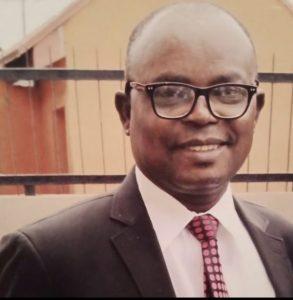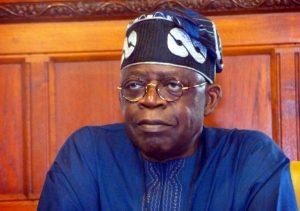Our policymakers have thrown up their hands in the air. From Aso Rock to the hallowed chambers of the National Assembly, our elected leaders are now setting the stage for foreign intervention in our domestic affairs. The President began by begging the United States of America to help us solve our current insecurity problem, at the same time that the Senate opened a debate that appears to have promoted a similar outcome.
On the face of it, we should be happy that Nigeria is asking for help to solve what appears like an intractable sociopolitical problem. We should be pleased that, for the first time, our President has, albeit unconsciously, admitted that we have a big national security problem on our hands, a problem that he inherited and which has persisted all through the six years he has been in power, a problem for which Nigerians gave him unreserved electoral mandate to solve. We gave the President this mandate twice. We should feel joyful because a problem recognized and admitted as a challenge is a problem half-solved. We should be breathing a sigh of relief because the President’s call for help is an admission that we have a grave internal crisis that needs a coordinated, professional, and inclusive approach to manage.

It is, however, a matter of concern that our first recourse to solving this problem is not an inclusive approach but an effort to invite foreign meddling in our domestic affairs, even when we are not yet in a civil war situation. Every right-thinking Nigerian should be worried that our leaders are calling for foreign military intervention in a domestic challenge that we can easily overcome. What troubles me the most is what this says about Nigeria’s military fighting force. Put simply, this unfortunate invitation to a foreign power implies that the Nigerian military forces are incompetent and are unable to professionally and efficiently manage an internal crisis situation. We all know that this is not the case. What is true is that we have refused to properly identify the problem we have and are rather skirting around it and politicizing issues around it.
To start with, is the Nigerian military incompetent? It was not too long ago, 1990 to be precise, that Nigeria mustered the political will to galvanise other ECOWAS members and pushed them into an agreement to intervene in the civil war decimating the population in Liberia. ECOMOG, the regional peacekeeping force that this created, was largely supported and led by Nigeria’s armed forces, with sub-battalion groups contributed by other member states. Nigeria spearheaded this West African fighting force to successfully halt the war of attrition going on in Liberia, and in Sierra Leone subsequently. ECOMOG separated brothers and ethnic warlords fighting themselves to a finish. This military intervention ultimately paved the way for true democracy to return to the two countries. Today, Liberia is dictating the pace in democratic practice, even much more than Ghana, by electing people that love their country without regard to gender or social class. Citizens of Liberia considered and freely elected a woman President who served with distinction and then followed this up with a world-famous footballer who is still holding the reins.
We must seriously consider if an American military intervention will achieve the same sustainable outcome for our country. This point bears restating. The Nigerian-led ECOMOG military force not only separated ethnic jingoists who were hell-bent on fighting each other to a finish in Liberia and Sierra Leone, but also effectively restored peace in the two countries. Nigeria led the effort to do this without foreign support, without African Union oversight, without United Nations financial backing, and without the United States or Russian forces looking over our shoulders as we fought to keep West Africa united and peaceful. And so, we ask: Is this not the same Nigerian armed forces that we are talking about? Even our police, despite our tendency to dismiss their relevance and services, are valued and praised for their professionalism and competence in international peacekeeping operations.
Don’t we see that an American military invitation for help calls into question the competency of the Nigerian military to deal with an internal crisis? Are we now descending into confusion in policymaking, which will be a surprising turnaround from the rigor that hitherto attended our analyses of and approach to matters of defense and international relations?
If, on the other hand, the call for help is not for American boots on Nigerian soil to separate those who are laying into each other in all parts of our country, what else could we be asking the Americans to do for us? We have heard from the Presidency and from members of the National Assembly (the policymakers who are driving the call for foreign intervention) as they speak in favor of a U.S. invitation. But what exactly are we asking for? Are we asking for hardware to prosecute the war, since the U.S. manufactures the most advanced and sophisticated weapons of war? Are we looking for more intelligence sharing, since they, obviously, have the most advanced technology capable of tracking everyone and everything? Could it be that we are asking for military manpower, since the U.S. has recently demonstrated that their Marines can easily steal in and take out bad people who try to hurt their citizens in Nigeria? What is it we want for which we cannot figure out a local national solution?
There are options to explore. Two major challenges define the problem as I see it. The first is that, quite often, we are reluctant to properly name the problem. Let us name it here. From all available authoritative evidence, everything points to us tolerating foreign Fulani elements that have infiltrated our boundaries and are willing to be used to cause mayhem across the country. The second challenge is that we now have a band of legislators who appear frightened and caged and are quite reluctant to go into proper oversight with an overarching goal to enthrone good governance in the management of our country.

The evidence that a foreign Fulani militia group is at the centre of the troubles we are having is clear, even with contradictory statements from three major responsible actors from the northern parts of this country. Ex-CBN deputy governor, Dr. Obadiah Mailafia, claimed that the troublemakers have the backing of authorities in the North and fingered an unnamed governor as their leader. From Governors Nasir el-Rufa’i (Kaduna) we got a confirmation that the militia group are foreign elements that he as governor has had to induce with bribes to leave Nigerians alone. His Bauchi counterpart, Bala Mohammed, however, toed a different line, arguing that all Fulani are one and that they should not be restricted from coming into and going out of Nigeria as they wish, as long as they have their kith and kin here. All three substantially agree that foreign elements are preponderant in the crisis situation we have. They also generally agree on their motives, although Mailafia is upfront about it while the governors play coy. Is it too far off to guess that financial and immigration opportunities dangled before them by the governors are more than enough incentives for foreign jobless youths to run wild in Nigeria? And because they are embedded among itinerant herdsmen, has it not become difficult for the powers that be to isolate them from the herdsmen that we have known since eternity, and then treat them like we treat those whose pastimes are to rob, rape and kill?
I do not blame the governors and leaders of the North that are speaking with forked tongues. Those that share the greater blame for what we are going through are our President and our federal legislators.
Right from when President Buhari took office, Nigerians have shouted themselves hoarse against non-inclusive appointments into critical public office positions. Thus, the biggest grudge that people harbour against the President is that he is not carrying the rest of the country along with him in appointments. No matter how hard his PR minders try to spin this fact, the President will live with this image for life. It would not have mattered if one part of the country was only favoured in the appointments, for as long as they benefit the country through improvements in most indices of development. Nigerians yearn for peace, in an enabling environment where opportunities are fairly shared. The obverse is an invitation to poor governance, which gives birth to dismay, deviance and defiance, as economically asphyxiated citizens desperately struggle for air. If the President is unable to act in the overall public interest, this should be in our legislators own behoof.
Although the executive holds the yam, the legislature holds the knife. This knife can be used to, for instance, force only executive round pegs into round holes, the only way to guarantee that such political nominees end up assisting our President to efficiently prosecute his development agenda for the good of us all. The legislative knife can be wielded to protect the President from bad decisions and thereby stem restiveness, scaremongering and gossips that have taken over the polity.
If the Senate had wielded its knife well, only competent security chiefs for the police and armed forces would have been selected. Wielding the knife also means watching the appointees closely as they deploy funds and powers to promote peace and development in Nigeria.
To Nigerians that are rejoicing over the American call for help, make no mistake about it. America will never intentionally harm its Marines by inserting them into our fractious domestic quarrels. Not even for all the oil in the Niger Delta. Also, America will examine all requests for hardware and software support in relation to its economic and political interests, not on the basis of cries from harassed people across our nation.
Above all, who says we cannot solve our internal problems by ourselves? The example of Liberia shows what happens when our strong army is motivated with good commanders and empowered with sufficient equipment and professional independence to carry out their duties, not beholden to political, religious, ethnic and any other interests.
What we need, in my view, is to summon the courage to look at our current problems not only from the eyes of the herdsmen whose cows are being rustled, but also and equally from the cries of the farmer whose crops are being eaten, trampled upon and destroyed, the wails and shame of innocent women abducted and raped in their farmlands, and the groans of all of us being waylaid on our highways to dispossess us of the things we earned through our sweat and our blood. By foreigners.
At this time in our history in the year 2021, every section of our country is hurting, the north not excluded. If our government does not know what to do, it could invite leaders of the different groups to a roundtable, rather than appealing to external forces that are sure to escalate and prolong our self-serving little wars. President Obasanjo did it in his own way when the country needed it. Yar’Adua stylishly did it by cuddling aggrieved Niger Delta youths whose case for justice was crying to the heavens. Jonathan did it at a time, even though the troubles he was having were largely instigated and sustained by the opposition at that time. Calling the aggrieved to a roundtable is the least that President Buhari can do in his search for a solution, a peaceful solution, to the problem. We wish him strength as he continues to ponder what is in the best interest of our country at this time.


















